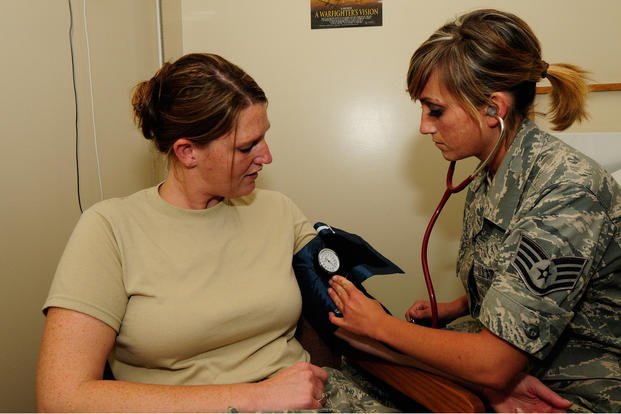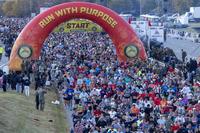Here is an email that I receive with increasing regularity as of late. More young people have elevated blood pressure or high blood pressure, and this is affecting their ability to join the military.
I'm trying to get into the Army National Guard. I passed the ASVAB and most of the physical. I said most because they found that I had high blood pressure. To be honest, it took me by surprise because I work out, jog every day and do not have any type of substance-abuse problem. I don't smoke, take any drugs and drink very casually. What are my options I could do to help me in getting in to serve my country. Help me, sir.
High blood pressure or hypertension is basically a circulatory problem that is an increase in pressure in your veins and arteries.
There are two numbers given in blood-pressure readings. The first number is when your heart is pushing out blood to the rest of your body; this is called the systolic pressure reading. The second number is referred to as the diastolic pressure reading, and that is when blood fills in the heart. So you measure blood flow out and blood flow in to get a reading.
Have you ever heard of the term "120 over 80" (120/80)? Well, if you have, you are in good company as that is the standard for healthy blood pressure. The problem with having high blood pressure when you are young (or old) is it damages blood vessels. That will affect circulation, if untreated, and can lead to heart attack, kidney damage, stroke, heart disease and a variety of other cardio/pulmonary illnesses.
High blood pressure is considered to be 140/90 and above. So if you are sporting these type of numbers, here are some tips for you to help get them lower:
- Exercise and eat more fruits and vegetables and fewer fatty foods. This can cure more than half our ailments if we follow number one.
- If overweight, lose weight.
- Eliminate tobacco products.
- Limit caffeinated drinks to moderate amounts in a day (1-2 max). Eliminate caffeine, if possible.
- Limit sodium in your diet. Eat out less and avoid foods in cans.
- Moderate consumption of alcohol only (1-2 drinks in a day)
- Relax. A stressful day can elevate blood pressure so when you go in for readings, relax, do the above and your numbers could be lower.
Some people have to go on medications, but I would resort to them only after you have exhausted all the above for several months.
Stew Smith is a former Navy SEAL and fitness author certified as a Strength and Conditioning Specialist (CSCS) with the National Strength and Conditioning Association. Visit his Fitness eBook store if you're looking to start a workout program to create a healthy lifestyle. Send your fitness questions to stew@stewsmith.com.
Want to Learn More About Military Life?
Whether you're thinking of joining the military, looking for fitness and basic training tips, or keeping up with military life and benefits, Military.com has you covered. Subscribe to Military.com to have military news, updates and resources delivered directly to your inbox.




















